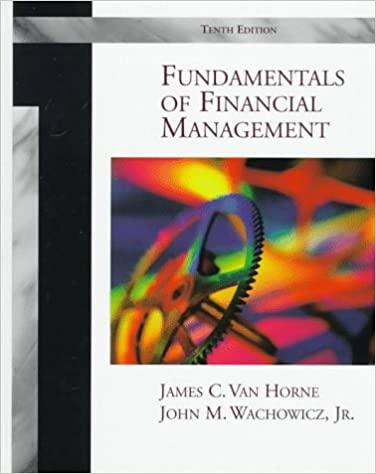Question
1) Arbitrage pricing theory relies on weaker assumptions than the capital asset pricing model. A. True B. False 2) Which of the following is NOT
1) Arbitrage pricing theory relies on weaker assumptions than the capital asset pricing model.
A. True
B. False
2) Which of the following is NOT a major assumption of arbitrage pricing theory?
A. There are many assets, so asset-specific risk may be eliminated
B. Asset returns may be represented by a factor model
C. Assets are priced such that there are no arbitrage opportunities
D. Asset returns are normally distributed
3) Which of the following is NOT a major type a factor model used in quantitative financial modeling?
A. Fundamental factor models
B. Macroeconomic factor models
C. Statistical factor models
D. Political factor models
4) In which type of factor model are the factors formed from attributes of stocks or companies?
A. Statistical factor model
B. Fundamental factor model
C. Microeconomic factor model
D. Macroeconomic factor model
5) Which of the following is NOT a fundamental factor?
A. Price-to-earnings ratio
B. Quarterly GDP growth
C. Book-value-to-price
D. Financial leverage
6) The denominator of the information ratio is the active risk.
A. True
B. False
Step by Step Solution
There are 3 Steps involved in it
Step: 1

Get Instant Access to Expert-Tailored Solutions
See step-by-step solutions with expert insights and AI powered tools for academic success
Step: 2

Step: 3

Ace Your Homework with AI
Get the answers you need in no time with our AI-driven, step-by-step assistance
Get Started


